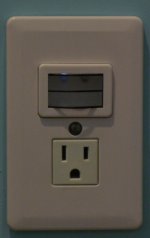JDgreen227
Super Member
I would be interested in learning which type of box the members here prefer for new construction...when we built on, my wifes's brother who is a journeyman electrician swore by those brownish-grey plastic boxes, saying they were the best type. But when I finished off and wired our basement, and rewired my barn, I used metal boxes. The issues I have with plastic boxes are that they are nail-on, and I think for most uses, they flex too much. I am very uncomfortable using them for ceiling light fixtures. I also hate it that when you push the wires back into the box after installing the switch or outlet, the wires flop around, while if you use a metal box you can use a cable clamp and eliminate that problem. Some people say "plastic boxes need no grounding" but I actually PREFER to have a grounded box.
While on the issue, does anyone know why you can buy a square metal 4 inch junction box for a dollar, but a 2 gang metal switch box costs $6 or $7? Thanks.
A footnote...I think plastic boxes were invented to speed up wiring, no wasting time screwing metal boxes to the framing, no need to ground the plastic ones, no messing with cable clamps...yeah, slap it together fast, as cheap as possible...
While on the issue, does anyone know why you can buy a square metal 4 inch junction box for a dollar, but a 2 gang metal switch box costs $6 or $7? Thanks.
A footnote...I think plastic boxes were invented to speed up wiring, no wasting time screwing metal boxes to the framing, no need to ground the plastic ones, no messing with cable clamps...yeah, slap it together fast, as cheap as possible...

